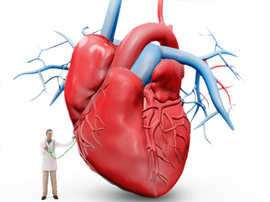Symptoms of Valvular Disease
The major symptoms of heart valve disease can sometimes vary depending on the type of condition you have. Also, when valvular disease is mild, or even moderate, it may show no symptoms and be picked up only as a result of testing.
Symptoms include:
- Shortness of breath upon exercising or awakening
- Extreme fatigue
- Fainting, weakness, or dizziness
- Swelling of the feet or ankles
- Chest pain or discomfort that increases with activity and extends to the arm, neck, jaw, or other areas
- Cough, sometimes with blood in phlegm
- Palpitations (being able to “feel” the heartbeat)
Causes of Heart Valve Disease
Here’s a rundown of the major causes of heart valve disease:
- Coronary artery disease or a heart attack can cause heart valve damage
- High blood pressure, which puts strain on the heart and its valves
- Congenital defects, which are heart valve abnormalities that occur before birth
- Infections such as rheumatic heart disease, which developed from strep infections. These used to be the major cause of heart valve problems. A rare, but serious infection called infective endocarditis can also damage heart valves
- Aging is still one of the greatest causes of heart valve problems
There are other rare causes of heart valve disease, including autoimmune diseases, such as lupus; radiation to the chest; and certain metabolic disorders, such as Fabry disease, which is a genetic disorder that leads to the buildup of a certain type of blood fat. High cholesterol can also affect heart valves.
Living With Valvular Disease
Here are some tips for people with heart valve disease. They are also applicable if you’ve had the situation addressed through replacement or repair.
- Take antibiotics before medical tests or procedures that involve bleeding, such as major or even minor surgery. You are at risk of an infection called endocarditis even if you’ve had a valve repair or replacement.
- Make sure your dentist knows any medications you are taking, and that you have valvular disease, so you can be given antibiotics before cleanings and other procedures as well.
- Carry an identification card that indicates that you have heart valve disease. This will help doctors to understand how best to treat you in case of a cardiac event. You can get these cards from a doctor or download one from the American Heart Association.

